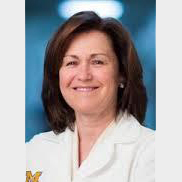New Leader Engagement: Part 2
Pediatric Insight: Passing Leadership Wisdom To The Next Generation
Topic: New Leader Engagement: Part 2
Making New Leaders Successful
Career Physician’s New Leader Engagement Program is a comprehensive leadership development approach that has proven to optimize a leader’s success in his/her new role. An experienced leader in the specialty performs an extensive review of the institution and the program prior to the search identifying respective strengths, weaknesses and challenges. Now post-search and in the role of mentor/coach, the same national expert remains engaged and is able to connect their pre-search preparatory work to their current efforts of supporting the new leader in critical strategic planning and process improvement. While this mentor/coach role differs somewhat from a formal executive coaching role, the value of an outside, arms-length advisor with situational knowledge who can serve as a confidant with no conflict of interests, has proven powerful.
“For a new leader, having access to an outside perspective is really important, someone that you can talk to who can help you look into problems and develop potential solutions.”
– Arnold (Arnie) Strauss, MD
Listen to the Podcast:
| Subscribe: Apple Podcasts | Spotify
Our moderator:
 Robert S. Sawin, MD
Robert S. Sawin, MD
Dr. Sawin is a pediatric surgeon, Emeritus Professor and Surgeon in Chief at Seattle Children’s Hospital and the University of Washington. Dr. Sawin served as the Vice-Chairman of the Department of Surgery, University of Washington School of Medicine, Senior Vice President and Chief Surgical Officer of the Seattle Children’s Hospital.
Our panel:
 Bruder Stapleton, MD
Bruder Stapleton, MD
Dr. Stapleton is a pediatric nephrologist, Professor Emeritus and Chair Emeritus at the University of Washington School of Medicine. He served as Chair of the Department of Pediatrics from 1996 to 2018, as well as Chief Academic Officer and Associate Dean from 2005 to 2018.
 Craig Hillemeier, MD
Craig Hillemeier, MD
Dr. Hillemeier is a pediatric gastroenterologist and Professor Emeritus of Pediatrics at Penn State University. He served most recently as the CEO of Penn State Health 2014 to 2019.
 Valerie Opipari, MD
Valerie Opipari, MD
Dr. Opipari is a pediatric hematologist/oncologist and Professor of Pediatrics at the University of Michigan School of Medicine and C.S. Mott Children’s Hospital. Dr. Opipari has held a number of administrative roles at the University of Michigan including Associate Provost for Faculty Affairs, Associate Chair for Research in the Department of Pediatrics and Chair of the University of Michigan Biomedical Research Council.
 Arnold (Arnie) Strauss, MD
Arnold (Arnie) Strauss, MD
Dr. Strauss is a pediatric cardiologist, Emeritus Professor and Chair of Pediatrics at the University of Cincinnati College of Medicine and Cincinnati Children’s Hospital Medical Center. Dr. Strauss served as the Chair of Pediatrics at the University of Cincinnati, Director of the Cincinnati Children’s Research Foundation (CCRF), and Chief Medical Officer of Cincinnati Children’s Hospital Medical Center (CCHMC) from 2007 to 2014.
 Wesley D. Millican, MBA
Wesley D. Millican, MBA
Wesley D. Millican, MBA, is CEO and Physician Talent Officer of CareerPhysician, LLC, providers of comprehensive talent solutions for academic children’s hospitals, colleges of medicine and academic medical centers across the nation. Mr. Millican is an acknowledged expert in completing complex faculty and executive leadership initiatives across academic medicine.
 Jon Hayes
Jon Hayes
Jon Hayes serves as the Executive Vice President (EVP) of child health for CareerPhysician. He has a comprehensive understanding of both academic department and children’s hospital operations. Prior to joining CareerPhysician, Jon served as President of Oklahoma Children’s Hospital. His previous experience also includes his role as Director of Finance and Administrator for the Department of Pediatrics at the University of Oklahoma College of Medicine.
At the Child Health Advisory Council, we conduct regular roundtable discussions. What topic would you like to see featured in upcoming discussions? Let us know.

